soldier
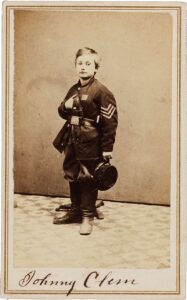
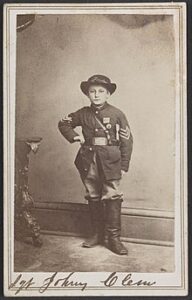 During the Civil War, military personnel was often short supply, and so, soldiers weren’t always adults. Sometimes, children enlisted, and sometimes they were “hired” on as messengers, scouts, and servants. They also might be hired on as musicians, such has drummers or buglers. On ships, children carried powder to fire the cannons, earning the nickname “powder monkeys.” In fact, one in five soldiers during the Civil War was under the age of 18.
During the Civil War, military personnel was often short supply, and so, soldiers weren’t always adults. Sometimes, children enlisted, and sometimes they were “hired” on as messengers, scouts, and servants. They also might be hired on as musicians, such has drummers or buglers. On ships, children carried powder to fire the cannons, earning the nickname “powder monkeys.” In fact, one in five soldiers during the Civil War was under the age of 18.
One such musician was Drummer John Joseph Klem. A popular legend suggests that Klem served as a drummer boy with the 22nd Michigan at the Battle of Shiloh. Legend has it that Klem came very near to losing his life when a fragment from a shrapnel shell crashed through his drum, knocking him unconscious and that subsequently his comrades, who found and rescued him from the battlefield, nicknamed Klem “Johnny Shiloh.” Klem slayed enemies in the Battle of Chickamauga…shooting a Confederate officer. Though Klem was only 10 years old, the Union made him a sergeant. Now imagine taking orders from a 10 year old sergeant.
Klem was born on August 13, 1851, to Roman and Magdalene Klem. His mother was killed crossing the railroad tracks when he was just 9 years old. As devastating as that was, his father’s second marriage was worse. John did not get along with his stepmother, and I suppose that could have contributed to his wanderlust spirit. He attended school in Newark, but often skipped school so he could drill as a drummer boy with a local unit…Company H, 3rd Ohio Volunteer Infantry. Like many people of that time, Klem felt strongly about the Civil War, but it was probably unusual for such a young boy to feel that way. Most likely the main factor the problems with his stepmother, making life at home unpleasant. His relatives joining up was probably another factor.
Motivating Klem was the fact that many of his relatives had enlisted in the army. He also deeply admired the president. In fact, he so admired President Lincoln that he changed his middle name to Lincoln. Because of his young age, recruiters turned Klem down when he tried to enlist. Several regiments passed through Newark on the way to the War. Klem immediately went to each and tried to join up, but each time he was turned down because of his age. He tried a new tactic, and traveled by train to try to enlist. That failed too, because he was always recognized by a friend or relative and sent home. Finally, Klem just ran away from home, to join the Army in 1861, at the age of 9. He finally got far enough away from home that they let him stay. Even then, he didn’t really enlist, because he was still too young. They allowed him to join the Michigan unit because they knew he would not give up until somebody let him join. When he offered his services as drummer to a company commander of the Third Ohio Volunteer Regiment, the captain looked him over and said he wasn’t “enlisting infants.” Johnny then tried to join the Twenty-second Michigan Regiment and was refused. Finally, he simply “went along with the regiment just the same, as a drummer boy, and though not on the muster roll, drew a soldier’s pay of thirteen dollars a month.” His pay was contributed by officers of the regiment.
At some point, Johnny Klem became Johnny Clem, although I am not sure just when. When Johnny Clem enlisted in the Army, legally or not, his intention was to stay. He might have been just a drummer boy at first, but when the shell hit his drum, he was not scared. Over the years of his service, he proved himself to be an invaluable member of the unit. He gained fame for his bravery on the battlefield, and became the youngest soldier ever to achieve the rank of sergeant, and I expect that record still stands. Clem retired from the United States Army in 1915, having attained the rank of brigadier general in the Quartermaster Corps. At the time of his retirement, he was the last veteran of the American Civil War still on duty in the US Armed Forces. By 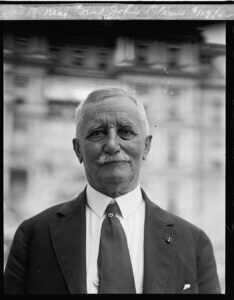
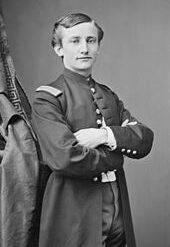 special act of Congress on August 29, 1916, he was promoted to major general one year after his retirement.
special act of Congress on August 29, 1916, he was promoted to major general one year after his retirement.
Clem was married twice. He first married Anita Rosetta French in 1875, and after her passing in 1899, he met and married Bessie Sullivan of San Antonio in 1903. Sullivan was the daughter of a Confederate veteran. Clem enjoyed that fact, and often said, that he was “the most united American” alive. Clem was the father of three children. After his retirement in 1915, Clem lived in Washington DC before returning to San Antonio, Texas. Just as he had as a child on the battlefield, Clem defied the odd, living a long and healthy life. He died in San Antonio at the age of 85 on May 13, 1937, and was buried in Arlington National Cemetery in Arlington County, Virginia.
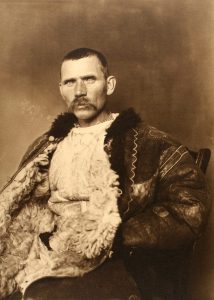
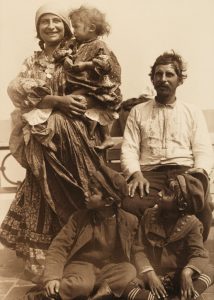
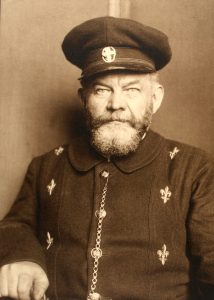 The United States has long been known as “The Melting Pot,” in reference to the immigration of many of its citizens. The United States was not a country that began with all of its people in place. I suppose no nation was really. There is, however, a legal way to immigrate, and an illegal way to sneak into a country. For the purpose of this story, the melting pot refers only to legal immigration. Beginning in 1892, and continuing until 1924, Ellis Island, located in New York Harbor, was the entrance for immigrants entering the United States. Not everyone who entered the United States had to go through Ellis Island, however. First and Second Class passengers were not so required. They were allowed to do all of their immigration paperwork, and inspections onboard the ship that arrived on. The Third Class passengers, however, were required to go through Ellis Island. There, they had medical exams and legal inspections to determine if they were fit for entry into the United States.
The United States has long been known as “The Melting Pot,” in reference to the immigration of many of its citizens. The United States was not a country that began with all of its people in place. I suppose no nation was really. There is, however, a legal way to immigrate, and an illegal way to sneak into a country. For the purpose of this story, the melting pot refers only to legal immigration. Beginning in 1892, and continuing until 1924, Ellis Island, located in New York Harbor, was the entrance for immigrants entering the United States. Not everyone who entered the United States had to go through Ellis Island, however. First and Second Class passengers were not so required. They were allowed to do all of their immigration paperwork, and inspections onboard the ship that arrived on. The Third Class passengers, however, were required to go through Ellis Island. There, they had medical exams and legal inspections to determine if they were fit for entry into the United States.
It is estimated that 12 million immigrants came through Ellis Island in those years. In all, about 2% were denied entrance into the United States. Our nation was quite generous with its legal immigration requests. One 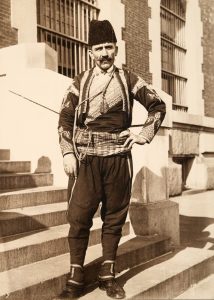
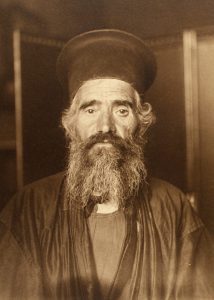 of the main reasons for the opening of Ellis Island was the change in the immigration requests. “Fewer arrivals were coming from northern and western Europe—Germany, Ireland, Britain and the Scandinavian countries—as more and more immigrants poured in from southern and eastern Europe. Among this new generation were Jews escaping from political and economic oppression in czarist Russia and eastern Europe (some 484,000 arrived in 1910 alone) and Italians escaping poverty in their country. There were also Poles, Hungarians, Czechs, Serbs, Slovaks and Greeks, along with non-Europeans from Syria, Turkey and Armenia. The reasons they left their homes in the Old World included war, drought, famine and religious persecution, and all had hopes for greater opportunity in the New World.”
of the main reasons for the opening of Ellis Island was the change in the immigration requests. “Fewer arrivals were coming from northern and western Europe—Germany, Ireland, Britain and the Scandinavian countries—as more and more immigrants poured in from southern and eastern Europe. Among this new generation were Jews escaping from political and economic oppression in czarist Russia and eastern Europe (some 484,000 arrived in 1910 alone) and Italians escaping poverty in their country. There were also Poles, Hungarians, Czechs, Serbs, Slovaks and Greeks, along with non-Europeans from Syria, Turkey and Armenia. The reasons they left their homes in the Old World included war, drought, famine and religious persecution, and all had hopes for greater opportunity in the New World.”
At one point, one of the men working on Ellis Island decided to bring his camera, and document the variety of people coming through. His photos really do show the “melting pot” that the United States was. He photographed a Romanian shepherd, a Serbian gypsy family, Danish captain, a bearded Greek priest, a Turkish bank guard, an Albanian soldier, an Algerian (wearing his finest clothes), and a tattooed German stowaway (who was eventually deported). It gives an inside look at the varied people who came to the United States, 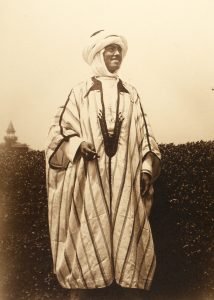
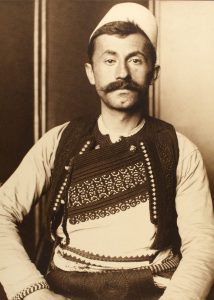
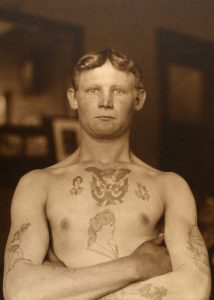 and these were just the third class passengers, seen on Ellis Island.
and these were just the third class passengers, seen on Ellis Island.
Ellis Island was used as an immigration center until 1924, at which time it was used until 1954 as a detention and deportation center for illegal immigrants. Now it is a museum, and a place where people can go to see if their ancestors came through on their way to a better life. The island had a varied past, and played a major role in creating “The Melting Pot” the United States was.
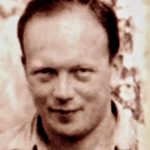 Heroes come in many forms, but few could be said to have been as sneaky as Eugene Lazowski, who was born Eugeniusz Slawomir Lazowski, in 1913 in Poland. His bravery was combined with genius, and in the end, he saved 8,000 Polish Jews at the height of the Holocaust. Lazowski saw the horrible way the Jews were treated, and he saw a way to help. Eugene Lazowski had just finished medical school when the Nazis invaded Poland in 1939. Typhus was spreading across the country. The disease was killing an average of 750 people a day. In an attempt to contain the disease, the Nazis increased their isolation and execution of Jews. Eugene joined the Polish Red Cross, but he was forbidden by the Nazis from treating Jewish patients. Nevertheless, under the cover of darkness, he sneaked into the Jewish ghetto and took care of the people there. Lazowski’s plan took an incredible amount of intellect, not to mention bravery. His life was on the line too. Lazowski created the illusion of an epidemic of a deadly disease, playing on the deep fears of the Nazis.
Heroes come in many forms, but few could be said to have been as sneaky as Eugene Lazowski, who was born Eugeniusz Slawomir Lazowski, in 1913 in Poland. His bravery was combined with genius, and in the end, he saved 8,000 Polish Jews at the height of the Holocaust. Lazowski saw the horrible way the Jews were treated, and he saw a way to help. Eugene Lazowski had just finished medical school when the Nazis invaded Poland in 1939. Typhus was spreading across the country. The disease was killing an average of 750 people a day. In an attempt to contain the disease, the Nazis increased their isolation and execution of Jews. Eugene joined the Polish Red Cross, but he was forbidden by the Nazis from treating Jewish patients. Nevertheless, under the cover of darkness, he sneaked into the Jewish ghetto and took care of the people there. Lazowski’s plan took an incredible amount of intellect, not to mention bravery. His life was on the line too. Lazowski created the illusion of an epidemic of a deadly disease, playing on the deep fears of the Nazis.
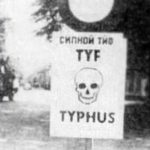 The plan came about in an unusual way. One day, a Polish soldier on leave begged Eugene and his colleague, Dr Stanislaw Matulewicz, to help him avoid returning to the warfront. I think there were many people who fought on the Nazi side of that era, who would give anything not to take part in what the Nazis were all about. Matulewicz had discovered that by injecting a healthy person with a vaccine of dead bacteria, that person would test positive for epidemic typhus without experiencing the symptoms. In an attempt to help the young solider fake a life-threatening illness, the doctors who had discovered that a dead strain of the Proteus OX19 bacteria in typhus would still lead to a positive test for the disease. Eugene realized that this could be used as a defense against the Nazis.
The plan came about in an unusual way. One day, a Polish soldier on leave begged Eugene and his colleague, Dr Stanislaw Matulewicz, to help him avoid returning to the warfront. I think there were many people who fought on the Nazi side of that era, who would give anything not to take part in what the Nazis were all about. Matulewicz had discovered that by injecting a healthy person with a vaccine of dead bacteria, that person would test positive for epidemic typhus without experiencing the symptoms. In an attempt to help the young solider fake a life-threatening illness, the doctors who had discovered that a dead strain of the Proteus OX19 bacteria in typhus would still lead to a positive test for the disease. Eugene realized that this could be used as a defense against the Nazis.
The two doctors hatched a secret plan to save about a dozen villages in the vicinity of Rozwadów and Zbydniów not only from forced labor exploitation, but also Nazi extermination. Lazowski began distributing the phony vaccine widely. Within two months, so many new (fake) cases were confirmed that Eugene successful 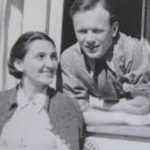 convinced his Nazi supervisors a typhus epidemic had broken out. The Nazis immediately quarantined areas with suspected typhus cases, including those with Jewish inhabitants. In 12 other villages, Eugene created safe havens for Jews through these quarantines. His work would eventually save 8,000 Jewish lives.
convinced his Nazi supervisors a typhus epidemic had broken out. The Nazis immediately quarantined areas with suspected typhus cases, including those with Jewish inhabitants. In 12 other villages, Eugene created safe havens for Jews through these quarantines. His work would eventually save 8,000 Jewish lives.
When the war ended, Eugene continued to practice medicine in Poland until he was forced to flee with his family to the United States. They settled in Chicago, where Eugene earned a medical degree from the University of Illinois. Decades later, he finally returned to Poland, where he received a hero’s welcome for saving those in desperate need of salvation through his unyielding love for humanity.
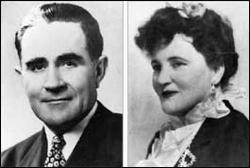 Everyone, at one time or another in their lives has thought about what it might be like to find a hidden treasure. There are many ways that could happen, from a hidden gold mine, to an auction, to the attic, but few can match what it would be like to find a buried treasure in a gold mine. It was the stuff dreams were made of, especially in the Old West. When gold was discovered in California, the Gold Rush started, and while few people ever found their fortune, many people made the journey to try their luck.
Everyone, at one time or another in their lives has thought about what it might be like to find a hidden treasure. There are many ways that could happen, from a hidden gold mine, to an auction, to the attic, but few can match what it would be like to find a buried treasure in a gold mine. It was the stuff dreams were made of, especially in the Old West. When gold was discovered in California, the Gold Rush started, and while few people ever found their fortune, many people made the journey to try their luck.
Victorio Peak was not in California, but it was said to hold a huge cache of gold ingots. The treasure was first discovered by a soldier, who on his death bed in the 1600s, told a monk in a New Mexico monastery about his knowledge of a secret cache of gold ore in the mountains. The monk was Padre Felipe LaRue. LaRue put together a band that purportedly located the mine and successfully drew ore from it for three solid years. When 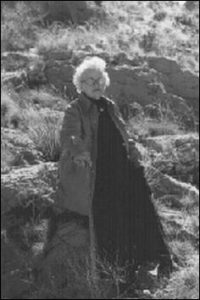 the Mexican Army was sent to overtake LaRue’s operation, he ordered workers to close the entrance to the mine with a landslide and, soon thereafter, LaRue’s entire camp took information about the location with them to the grave at the hands of the soldiers.
the Mexican Army was sent to overtake LaRue’s operation, he ordered workers to close the entrance to the mine with a landslide and, soon thereafter, LaRue’s entire camp took information about the location with them to the grave at the hands of the soldiers.
Fast forward to 1937, when a New Mexico couple named Ernest and Ova Noss were said to have stumbled upon a narrow entrance to this mine while hunting, and then returned several times to collect the heavy gold ingots from the secret location. When Ernest tried to open the mine further with a blast of TNT, it was inadvertently sealed despite repeated attempts to reopen it. When the White Sands Missile and Bombing Range was expanded in 1955 to include the land, Ova Noss supposedly sent a party to investigate and they reported that Army officials were seen digging near the site. Still, the Army never made any mention of the Victorio gold.
In 1977, ground-penetrating radar identified an open area underground near where the Noss’ claim might have been. In the 1990s, a locked steel door was said to have been found covering the site of the original shaft.  Whatever the case may be, a reported 88 solid gold ingots were brought forth from the mountains of New Mexico by the Noss couple, and it is unlikely the public will ever know exactly what became of the site and its associated treasure. Some people think the whole legend is a con, but shortly before her death in 1979, Ova Noss was a the White Sands Missile Range seeking access to her claim. Access was denied, and to this day her family and their organization called The Ova Noss Family Partnership continue to push for access to the mine, although in my mind, it is doubtful that they would find much today, since the mine has been under the exclusive control of the missile base for a long time.
Whatever the case may be, a reported 88 solid gold ingots were brought forth from the mountains of New Mexico by the Noss couple, and it is unlikely the public will ever know exactly what became of the site and its associated treasure. Some people think the whole legend is a con, but shortly before her death in 1979, Ova Noss was a the White Sands Missile Range seeking access to her claim. Access was denied, and to this day her family and their organization called The Ova Noss Family Partnership continue to push for access to the mine, although in my mind, it is doubtful that they would find much today, since the mine has been under the exclusive control of the missile base for a long time.
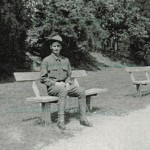 Since my oldest grandson, Chris Petersen turned eighteen last February 28th, and had to register for the draft, and my grandson, Caalab Royce will be registering in June after he turns eighteen this year on the 25th, I have wondered a little more about the making of a soldier…in any war. Since the draft is something that almost never happens these days, it was not a real priority in my mind, however. Then I started looking at my Aunt Bertha Hallgren’s journal again, because she was such a great writer, and because I haven’t referred to her work in a while. I stumbled across a reference she makes to the experience of a World War I soldier. Since my grandfather, George Byer fought in World War I, that part of her journal made me curious.
Since my oldest grandson, Chris Petersen turned eighteen last February 28th, and had to register for the draft, and my grandson, Caalab Royce will be registering in June after he turns eighteen this year on the 25th, I have wondered a little more about the making of a soldier…in any war. Since the draft is something that almost never happens these days, it was not a real priority in my mind, however. Then I started looking at my Aunt Bertha Hallgren’s journal again, because she was such a great writer, and because I haven’t referred to her work in a while. I stumbled across a reference she makes to the experience of a World War I soldier. Since my grandfather, George Byer fought in World War I, that part of her journal made me curious.
The story Aunt Bertha wrote was funny to a large degree, although I doubt that the soldier she wrote abut thought it was funny exactly. I suppose that as a eighteen year old boy, at a time when education was not always the top priority, he did not always understand the new to him words that were being thrown at him, being asked if you were an alien, might make you wonder if they were asking if you were sick right now, but the humor was somehow lost on the officer who was asking the questions. And when he asks you your name, and he has known you all your life, because he’s your milkman, it might be hard not to say, “You know my name.” Nevertheless, you must quickly learn that knowing you in life and knowing you in the military are obviously two very different things. You had better just answer the question and not act like a smart-aleck.
After getting past the registration area, and getting the feeling that these guys didn’t expect you to make it past the first week in combat, you might start looking for the door, and wondering if there was any way to make them believe you were only seventeen after all. Nevertheless, the line moved forward, and there was no way to get out of it, so you followed along. At some point you were issued a uniform, which the soldier Bertha was talking about described as one of two sizes…too small or too big. He pointed out that the pants were so tight that he didn’t dare sit down, and the shoes were so big that he could “turn around twice, and they didn’t move”. Sadly, I think that is the way it was during World War I. A guy could probably deal with the loose fitting clothes, but those tight ones wouldn’t last long. And to make matters worse for our particular soldier, he passed an officer, who immediately asked him if he had noticed the uniform the officer was wearing. In his typical eighteen year old mouthiness, and his lack of understanding the meaning of the question, our new soldier, asked why the officer was complaining. Hadn’t he seen how ill fitting the soldiers uniform was after all. I seriously doubt if the officer saw the humor in that.
After another mouthy session, the soldier found himself digging a hole…then being told to dig another one to throw the dirt into. I guess you can see where this task was heading. If our soldier didn’t figure out pretty fast 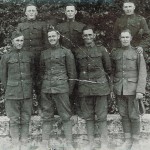 that he needed to keep his sarcasm to himself, then it is my guess that he spent a lot of time peeling potatoes, scrubbing floors, and digging holes…when he wasn’t fighting for his life that is. As time went on, I’m sure he figured out that they didn’t care about his opinion, and if he gave it anyway, he was going to wish he hadn’t. While this type of soldier would not really make a great soldier, he would probably have made a funny movie. I’m sure he got over the need to be funny once the bullets started flying too. By the way, I really don’t recommend that any of the soldiers, who might be coming up the ranks, act this way. I think that while sarcasm in school might make you the class clown, and make you popular with your friends, because that’s what kids do, it will not have the same affect on your commanding officer in any way, shape, or form.
that he needed to keep his sarcasm to himself, then it is my guess that he spent a lot of time peeling potatoes, scrubbing floors, and digging holes…when he wasn’t fighting for his life that is. As time went on, I’m sure he figured out that they didn’t care about his opinion, and if he gave it anyway, he was going to wish he hadn’t. While this type of soldier would not really make a great soldier, he would probably have made a funny movie. I’m sure he got over the need to be funny once the bullets started flying too. By the way, I really don’t recommend that any of the soldiers, who might be coming up the ranks, act this way. I think that while sarcasm in school might make you the class clown, and make you popular with your friends, because that’s what kids do, it will not have the same affect on your commanding officer in any way, shape, or form.
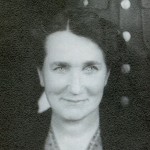 As time marched forward toward the United States entering World War II, many people were afraid for the lives of their sons. My dad’s mother, who had two sons, was among them. Things were really heating up while my dad was working in California, and the family really wanted him come home. The word was that any young men 18 to 20 years of age were going to be deployed by Christmas 1942, putting my dad and my Uncle Bill squarely in that group. It was a fearful time in our country. People didn’t want their sons to go to the war, but they knew that Hitler had to be stopped. The things Hitler was doing were so horrible that everyone knew that he must not be allowed to take any more countries over. He was completely insane and dead set on controlling the whole world. They knew that while the fear of sending their sons into battle was almost more than they could possibly bear, it was also going to be the only way to stop this horrible man.
As time marched forward toward the United States entering World War II, many people were afraid for the lives of their sons. My dad’s mother, who had two sons, was among them. Things were really heating up while my dad was working in California, and the family really wanted him come home. The word was that any young men 18 to 20 years of age were going to be deployed by Christmas 1942, putting my dad and my Uncle Bill squarely in that group. It was a fearful time in our country. People didn’t want their sons to go to the war, but they knew that Hitler had to be stopped. The things Hitler was doing were so horrible that everyone knew that he must not be allowed to take any more countries over. He was completely insane and dead set on controlling the whole world. They knew that while the fear of sending their sons into battle was almost more than they could possibly bear, it was also going to be the only way to stop this horrible man.
The letters from home to my dad in California were filled with worried questions. They had heard rumors of the impending deployment back home in Holyoke, Minnesota, and were desperately hoping that what they heard in that small town was wrong. They questioned my dad, as to why he thought he would be going so soon. Uncle Bill and Dad had both decided 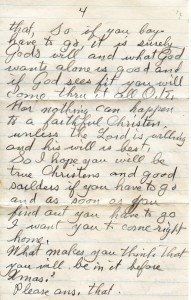 that if one was called to go, the other would join up too. I’m sure they were thinking that if they went together, they could watch each other’s back. In the end, that was not to be, because Uncle Bill had flat feet and a hernia that needed to be repaired. It was a devastating blow to him. He wanted so desperately to be there with his little brother. He had always been there for him, to protect him, and it seemed impossible that he couldn’t do that this time. He was scared for his little brother. He even tried to get him to take welding classes, because he mistakenly thought that my dad wouldn’t have to go if he was working in the shipyards. I don’t know if dad took the classes or not…he did at some point, because he worked as a welder for many years…but if he did, it did no good, because they needed men in the war zones, and that was more important to the country. In the end, he chose the Army Air Force, and went to the war, did his duty to his country and the world, and he lived!!
that if one was called to go, the other would join up too. I’m sure they were thinking that if they went together, they could watch each other’s back. In the end, that was not to be, because Uncle Bill had flat feet and a hernia that needed to be repaired. It was a devastating blow to him. He wanted so desperately to be there with his little brother. He had always been there for him, to protect him, and it seemed impossible that he couldn’t do that this time. He was scared for his little brother. He even tried to get him to take welding classes, because he mistakenly thought that my dad wouldn’t have to go if he was working in the shipyards. I don’t know if dad took the classes or not…he did at some point, because he worked as a welder for many years…but if he did, it did no good, because they needed men in the war zones, and that was more important to the country. In the end, he chose the Army Air Force, and went to the war, did his duty to his country and the world, and he lived!!
For some time now, I thought that the main reason my dad’s letters home were always upbeat and positive was so that he could protect his mother…keep her from worrying about how bad things were. Now, after reading her letters to him, and the letters from his brother and sisters, talking about how worried their mother was, I realized that he wasn’t trying to keep her from worrying…she had already voiced those fears…she was already in the middle of serious worry, and now she was in the middle of praying that her boys wouldn’t have to go, and if they did…please dear Lord, take care of them and bring them home to her!!
It is hard enough to go into battle or to send your son into battle…to deal with the fear in your own heart…much less to know that your soldier was scared…and for the soldier, to know that 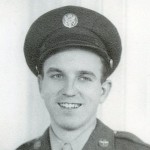 your family is scared. Knowing my dad like I do, I know that he was in the process of pushing his fear back, putting his faith in God, and setting his mother’s worried mind at ease. He knew he could not stop what was coming, but the hardest thing to accept was that he couldn’t really stop his mother’s fears…no matter how excited, positive, or fearless he made his letters sound. And, that tore him up more than anything he would face in the war. The days leading up to, and during World War II, were filled with the worries and fears of a nation. The letters to the soldiers and home from the war, were carefully worded so as to try to alleviate the fears that could not be alleviated until the deployed loved ones were home again.
your family is scared. Knowing my dad like I do, I know that he was in the process of pushing his fear back, putting his faith in God, and setting his mother’s worried mind at ease. He knew he could not stop what was coming, but the hardest thing to accept was that he couldn’t really stop his mother’s fears…no matter how excited, positive, or fearless he made his letters sound. And, that tore him up more than anything he would face in the war. The days leading up to, and during World War II, were filled with the worries and fears of a nation. The letters to the soldiers and home from the war, were carefully worded so as to try to alleviate the fears that could not be alleviated until the deployed loved ones were home again.
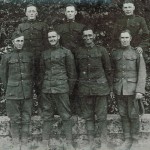 When men go off to war, their buddies become more than just people they serve with. They are family, and more importantly, they are a life line. These men, often barely more than boys, have to count of their fellow soldiers to have their back…in the deepest sense of the word. If the platoon is attacked, it is going to be the ability of the men in the platoon to act at a moments notice that will often decide their fate. Of course, no one is going to be able to move fast enough to get away from a bomb that has been dropped in most cases. There just isn’t time, but if everyone is alert, many dangers can be seen in time to warn the rest of the platoon. The further back in history the war is, the more the men had to depend on each other to stay alive, because modern equipment has helped to track the approaching enemy these days, but back then it wasn’t available.
When men go off to war, their buddies become more than just people they serve with. They are family, and more importantly, they are a life line. These men, often barely more than boys, have to count of their fellow soldiers to have their back…in the deepest sense of the word. If the platoon is attacked, it is going to be the ability of the men in the platoon to act at a moments notice that will often decide their fate. Of course, no one is going to be able to move fast enough to get away from a bomb that has been dropped in most cases. There just isn’t time, but if everyone is alert, many dangers can be seen in time to warn the rest of the platoon. The further back in history the war is, the more the men had to depend on each other to stay alive, because modern equipment has helped to track the approaching enemy these days, but back then it wasn’t available.
My grandpa served in World War I, and while he was a cook and not a fighting soldier, the danger was just as real for him as it was for any other soldier. You can’t be in a war zone, and not be in danger, and quite possibly he had to depend on his fellow soldiers more than someone who was in a fighting position, because he didn’t carry a gun on a regular basis. An attack on the camp would leave these men more vulnerable than men who regularly carry a gun. I’m quite sure that Grandpa and his crew had guns assigned to them, they still didn’t use them as much as other men, as so were not as used to them. They had to know that their platoon members were going to have their back…and they did.
Many men felt such a close tie to their fellow soldiers, that life long friendships were built. 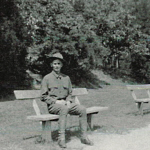 Their comrades were never to be forgotten…whether they made it through the war or not. In fact, often it was those men who did not come home, who were most remembered, because quite often, they gave their life to protect their fellow soldiers. I am thankful for the men who fought with my grandfather, and made a way for him to come home to his family, because without those men, my family and I would not be here today. Their bravery in fighting for their country made our way of life possible in the nation, and brought back to his family, the gentle loving man that was my grandfather. It was the code of all military men and women, then and now. When going into battle, soldiers have always been heard saying, “I’ve got your back.” And they do.
Their comrades were never to be forgotten…whether they made it through the war or not. In fact, often it was those men who did not come home, who were most remembered, because quite often, they gave their life to protect their fellow soldiers. I am thankful for the men who fought with my grandfather, and made a way for him to come home to his family, because without those men, my family and I would not be here today. Their bravery in fighting for their country made our way of life possible in the nation, and brought back to his family, the gentle loving man that was my grandfather. It was the code of all military men and women, then and now. When going into battle, soldiers have always been heard saying, “I’ve got your back.” And they do.
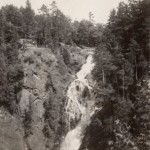 Old pictures can bring back memories of great times that you don’t want to forget. In my Dad’s letters home from World War II, he asked for pictures of his favorite spots and people so that he could keep them stored in his memory. As a young soldier, he was lonely for both family and home. He wanted to see the places they used to go, like Manitou Falls…a place that I have looked up online, and I can say that I can fully understand why Dad would like it. Not just because it is a very pretty place, but because it is a trip down Memory Lane. It’s a place we all need to go sometimes.
Old pictures can bring back memories of great times that you don’t want to forget. In my Dad’s letters home from World War II, he asked for pictures of his favorite spots and people so that he could keep them stored in his memory. As a young soldier, he was lonely for both family and home. He wanted to see the places they used to go, like Manitou Falls…a place that I have looked up online, and I can say that I can fully understand why Dad would like it. Not just because it is a very pretty place, but because it is a trip down Memory Lane. It’s a place we all need to go sometimes.
When I look at the pictures I have taken while  Bob and I are out hiking, I can relate to my dad’s desire for pictures of those places he loved so much. When you look at them, you can feel yourself going back in time to that place again. Reliving the moments. The times of our lives. I love being out on the trail, listening to the birds and far away from the traffic and other annoying sounds of the city. The trail is a place of peace for me, in an otherwise stressful world.
Bob and I are out hiking, I can relate to my dad’s desire for pictures of those places he loved so much. When you look at them, you can feel yourself going back in time to that place again. Reliving the moments. The times of our lives. I love being out on the trail, listening to the birds and far away from the traffic and other annoying sounds of the city. The trail is a place of peace for me, in an otherwise stressful world.
Some of my favorite childhood memories involved our annual vacations. Mom and Dad took us so many places. We camped out, sleeping under the stars…no tent needed. We sat around the campfire for hours before finally deciding that we couldn’t stay awake any longer…mostly because we all hated to have the evening around the fire 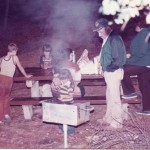 end. We woke to the birds chirping and usually a fire going, because Dad was up and had it going…the smell of coffee brewing and bacon frying filled the morning air…mingled with the smell of burning wood on the fire. Those are the memories that mean summer to me.
end. We woke to the birds chirping and usually a fire going, because Dad was up and had it going…the smell of coffee brewing and bacon frying filled the morning air…mingled with the smell of burning wood on the fire. Those are the memories that mean summer to me.
We all have special memories that remind us of the times of our lives, and they are a varied as we are, but each memory is precious and the pictures we take are a way to keep them close. I know that was what my dad was looking for when he asked for pictures from home so long ago as he was stationed in England in World War II. He couldn’t go home right then, but he could let his mind re-live the times of his life.
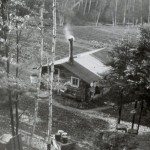 When a soldier is serving his country, so far away from home, he often feels like he will not be returning to the same world he left when he joined the service, or was drafted, as used to be the case. The letters from home mean more to that soldier than their writer could ever imagine, and yet, so often, what starts with the best of intentions…to write daily letters…soon slips and ends up being every couple of weeks or once a month. That schedule works well for the person writing from home, but is terribly hard on the soldier, so far away, and wondering if they have been forgotten.
When a soldier is serving his country, so far away from home, he often feels like he will not be returning to the same world he left when he joined the service, or was drafted, as used to be the case. The letters from home mean more to that soldier than their writer could ever imagine, and yet, so often, what starts with the best of intentions…to write daily letters…soon slips and ends up being every couple of weeks or once a month. That schedule works well for the person writing from home, but is terribly hard on the soldier, so far away, and wondering if they have been forgotten.
My dad’s letters home from World War II, while varied in content, really said just one thing…I wish I was home. In his letter from July 4th, 1944, he talks about all the great things the family did on Independence Day. My dad writes, “The picnics, drives, swimming at Manitou Falls, the ball games, and all kinds of stuff like that.” He goes on to say that it all seems “so long ago” and I can almost hear the sense of loss in his words. Then he talks about how he can “remember each little detail” and how the “little things like that stick in a fellows memory their whole life, because those things that seemed unimportant at the time, all go together to make up one wonderful word…Home.” He continues, “And the fourth of July is as much a part of that word, as the front door is a part of the house.”
I have found that there was a writer living inside my dad too. Something I had no idea about before. His words painted such a clear picture that I almost felt like I was there. And, between the lines, lived the pain of the loneliness that a young soldier was feeling. Then, I could see my dad, pulling himself up by the bootstraps, and setting aside his feelings so his mother wouldn’t worry, when he lightly said, “Say, let me know what you did on the fourth. Will you? Where you went and if you had fun.” He went on to talk about the flowers that grew in England…a subject he knew his mother would like, although my dad always did like Lilacs too, and missed them in England. When I was a girl growing up, our yard was always full of them. I guess he always wanted to feel like he was home and Lilacs were a big part of that to him.
Dad always tried not to let his feelings worry his mother. I’m sure that is what every soldier has to do. Still, I can’t help tearing up when I think of his feelings. I have always thought of my dad as such a strong man, who always knew what to do, and he was when I knew him, but there was a time that he was, as every soldier is in war time, a scared kid, trying to be brave and not let anyone know what they are feeling, and most of all a kid, wanting to go…Home again.

